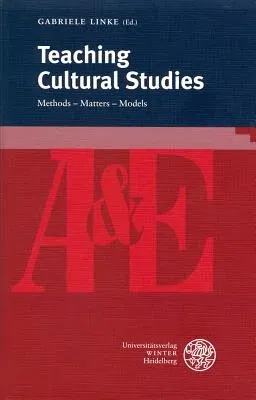In previous years, many introductions to cultural studies have been
published, but there have been few studies that reflected on and
systematised teaching experiences, course design, and teaching and
learning techniques in the field. This volume is an attempt to close
this gap by recording instructors' experiences and insights and
presenting successful models of instruction. The contributions assembled
do not only aim to broaden the scope of cultural studies instruction but
also to facilitate the design of cultural studies courses. Therefore
they contain case studies and examples of courses which demonstrate the
effective integration into cultural studies of theories and models taken
from well-established disciplines such as history, sociology, museum
studies, post-colonial and literary studies. Moreover, the brief
overviews of a range of academic disciplines, methods and topics which
are offered in the articles provide excellent introductory readings in
classes on, for example, place, gender, identity, visual culture,
reggae, social movements or the Angry Young Men. In addition, there are
articles that focus on teaching (with) Web 2.0, on the nature and
functions of stereotypes and on learning and teaching techniques for
cultural studies classes. Because of the variety of topics and
approaches it covers, this volume may become a valuable resource not
only for instructors but also for students and researchers of cultural
studies.

